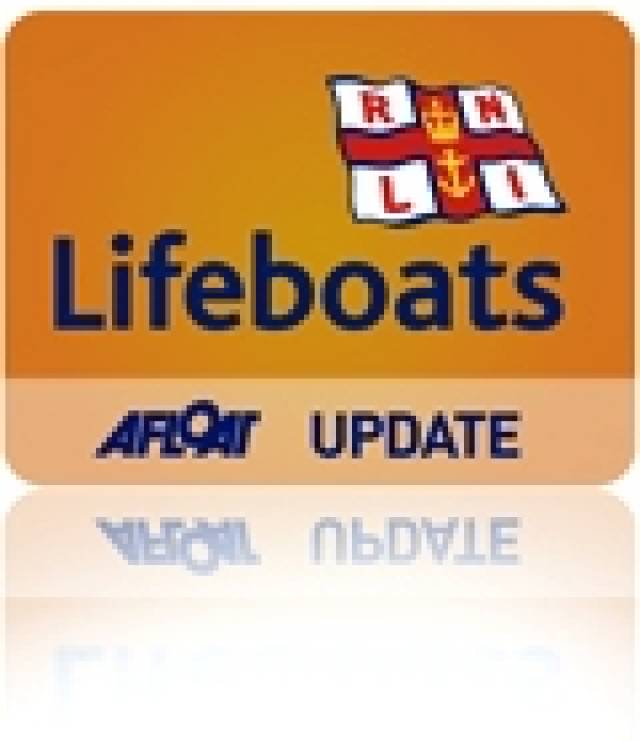#RNLI - Arklow RNLI’s volunteer lifeboat crew were alerted by pager at 6.44pm yesterday evening (14 June) to a call for help from a local fishing vessel in the station's second callout of the week, following the lifeboat's midweek rescue of a stricken sailboat.
The crew consisting of coxswain Ned Dillon, station mechanic Michael Fitzgerald, John Bermingham, Scotty Heaney, Keith Forde and Eddie McElheron launched the lifeboat Ger Tigchleaar and proceeded to the vessel, which had suffered machinery failure and was adrift outside the mouth of Arklow Harbour.
After locating the casualty vessel, the lifeboat crew established a tow line and proceeded back in to Arklow with the vessel alongside. All crew members aboard the casualty remained aboard during the service and all hands came ashore safely.
Speaking following the incident, Arklow RNLI volunteer lifeboat press officer Mark Corcoran said: "All people who take to the water whether for a living or for pleasure must always wear their lifejackets and should always have a means of raising the alarm."
Elsewhere, RNLI volunteers aboard Donaghadee's all-weather lifeboat Saxon sped to the rescue of a stricken vessel as darkness fell on Friday evening (12 June).
The 10-metre craft with a crew of one developed engine trouble on a passage to Westport in Co Mayo and was adrift in the busy sea lanes at the mouth of Belfast Lough.
The Donaghadee lifeboat launched at the request of the coastguard at 10.15pm and conducted a search in the gathering gloom one mile north of the Copeland Islands until the vessel was located.
In light sea conditions, a member of the RNLI crew boarded the vessel to assist with repairs and the lifeboat then escorted it to the safety of Bangor Marina. Saxon was back on station and stood down shortly after midnight.
Donaghadee RNLI coxswain Philip McNamara advised all boat owners "to conduct a thorough check of their engines, communications and safety equipment before putting to sea.
"If you encounter a problem, call for assistance at the earliest opportunity. We are ready to be of service and It is always better to be safe than sorry."































































